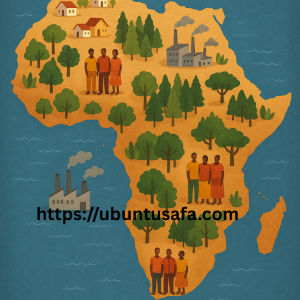Iranian and U.S. delegations wrapped up a fifth round of talks in Rome on Friday and signs of some limited progress emerged in the negotiations aimed at resolving a decades-long dispute over Tehran's nuclear ambitions.
Despite both Washington and Tehran taking a tough stance in public ahead of the talks on Iran's uranium enrichment, Iranian Foreign Minister Abbas Araqchi said there was potential for progress after Oman made several proposals during the talks.
"We have just completed one of the most professional rounds of talks ... We firmly stated Iran's position ... The fact that we are now on a reasonable path, in my view, is itself a sign of progress," Araqchi told state TV.
"The proposals and solutions will be reviewed in respective capitals ... and the next round of talks will be scheduled accordingly."
A senior U.S. official said the talks lasted more than two hours and were both direct and indirect with Omani mediators.
"The talks continue to be constructive – we made further progress, but there is still work to be done. Both sides agreed to meet again in the near future. We are grateful to our Omani partners for their continued facilitation," the official said.
The stakes are high for both sides. President Donald Trump wants to curtail Tehran's potential to produce a nuclear weapon that could trigger a regional nuclear arms race and perhaps threaten Israel. The Islamic Republic, for its part, wants to be rid of devastating sanctions on its oil-based economy.
Omani Foreign Minister Badr Albusaidi said on X the talks between Araqchi and Trump's Middle East envoy Steve Witkoff had ended "with some but not conclusive progress".
Ahead of the talks, Araqchi wrote on X: "Zero nuclear weapons = we Do have a deal. Zero enrichment = we do NOT have a deal. Time to decide."
Among remaining stumbling blocks are Tehran's refusal to ship abroad its entire stockpile of highly enriched uranium - possible raw material for nuclear bombs - or engage in discussions over its ballistic missile programme.
Diplomats have said reaching a concrete deal before the summer would technically be impossible given the complexities of an accord. In the meantime, a senior Iranian official involved in nuclear talks with the U.S. said "if Washington drops its 'zero enrichment' demand, a political agreement is feasible."
STUMBLING BLOCKS
U.S. Secretary of State Marco Rubio said on Tuesday that Washington was working to reach an accord that would allow Iran to have a civil nuclear energy programme but not enrich uranium, while acknowledging that this "will not be easy".
Iranian Supreme Leader Ayatollah Ali Khamenei, who has the last say on matters of state, rejected demands to stop refining uranium as "excessive and outrageous", warning that such talks were unlikely to yield results.
Iran says it is ready to accept some limits on enrichment, but needs watertight guarantees that Washington would not renege on a future nuclear accord.
Trump in his first term in 2018 ditched a 2015 nuclear pact between major powers and Iran. Since returning to office this year, he has restored a "maximum pressure" campaign on Tehran and reimposed sweeping U.S. sanctions that continue to hobble the Iranian economy.
Iran responded by escalating enrichment far beyond the 2015 pact's limits.
Wendy Sherman, a former U.S. undersecretary who led the U.S. negotiating team that reached the 2015 agreement, earlier said that Tehran presents enrichment as a matter of sovereignty.
"I don't think it is possible to get a deal with Iran where they literally dismantle their programme, give up their enrichment, even though that would be ideal," she told Reuters.
The cost of failure of the talks could be high. Iran's arch-foe Israel sees Iran's nuclear programme as an existential threat and says it would never allow the clerical establishment to obtain nuclear weapons. Tehran says it has no such ambitions and the purposes are purely civilian.
Israel's strategic affairs minister and the head of its foreign intelligence service, Mossad, were also due to be in Rome for talks with the U.S. negotiators.
Araqchi said on Thursday that Washington would bear legal responsibility if Israel attacked Iranian nuclear installations, following a CNN report that Israel might be preparing strikes.
---------------------------------------------------------------------
Iranian foreign minister said.....
The United States would be held responsible in the event of an Israeli attack on Iranian nuclear sites, Iran’s foreign minister has warned, after CNN reported that Israel could be preparing strikes.
Iran and the US, Israel’s closest ally, will hold a fifth round of nuclear talks on Friday amid deep disagreement over uranium enrichment in Iran, which Washington says could lead to developing nuclear bombs.
Tehran has consistently denied seeking a bomb and insisted its nuclear programme is for civilian purposes.
“Iran strongly warns against any adventurism by the Zionist regime of Israel and will decisively respond to any threat or unlawful act by this regime,” Foreign Minister Abbas Araghchi said in a letter addressed to United Nations Secretary-General Antonio Guterres.
“I have called on the international community to take effective preventive measures against the continuation of Israeli threats, which if unchecked, will compel Iran to take special measures in defence of our nuclear facilities and materials,” Araghchi said.
The minister said Tehran would view Washington as a “participant” in any such attack.
“The nature, content, and extent of our actions will correspond and be proportionate to preventive measures taken by these international bodies in accordance with their statutory duties and obligations,” he added.
Araghchi’s remarks follow a CNN report on Tuesday that described the US as having “new intelligence suggesting that Israel is making preparations to strike Iranian nuclear facilities”.
Israel has not acknowledged any preparations, though officials up to Israeli Prime Minister Benjamin Netanyahu have repeatedly threatened to strike Iran’s nuclear sites to prevent it from being able to obtain a nuclear weapon, should it choose to pursue one.
The US and Iran are due to hold indirect talks on Friday in Rome in what would be their fifth round of negotiations over a possible deal that could see Tehran limit or end its enrichment of uranium, in exchange for the lifting of economic sanctions.
Israel has repeatedly opposed such an agreement between the US and Iran.
Later on Thursday, Araghchi said in an interview carried by Iranian state TV that if the US aims to end uranium enrichment then there will be no nuclear deal.
US officials have said “that they do not believe in enrichment in Iran … and it has to stop completely; if this is their goal there will be no deal”, Araqchi said.
The foreign minister said the idea of a uranium enrichment consortium with the participation of other nations is not bad, but will not replace enrichment on Iranian soil.
Earlier this week, Supreme Leader Ayatollah Ali Khamenei said US demands that Tehran stop enriching uranium were “excessive and outrageous”.
Iran’s Islamic Revolutionary Guard Corps (IRGC), which reports directly to Khamenei, also warned on Thursday that Israel would receive a “devastating and decisive response” if it attacks Iran.
“They are trying to frighten us with war, but are miscalculating as they are unaware of the powerful popular and military support the Islamic Republic can muster in war conditions,” IRGC spokesperson Alimohammad Naini was quoted by state media as saying.
----------------------------------------------------------------------
Iran’s top diplomat insisted that Tehran will never stop enriching uranium, reinforcing the Islamic Republic’s hard line ahead of a new round of indirect talks with the United States over its fast-advancing nuclear program.
Iran's foreign ministry later confirmed it has agreed to take part in the next round of talks Friday in Rome.
The comments by Iranian Foreign Minister Abbas Araghchi come after multiple rounds of talks between the two nations, including at an expert level over the details of a possible deal. American officials including President Donald Trump, Mideast envoy Steve Witkoff and Secretary of State Marco Rubio maintain that Iran must give up enrichment — something it didn’t do in its 2015 nuclear deal with world powers.
“I have said it before, and I repeat it again: uranium enrichment in Iran will continue — with or without an agreement,” Araghchi said, according to state television.
Araghchi added that Iran was “currently reviewing whether to participate in the next round and when to take part” in talks with the U.S. Negotiators previously met in Muscat, Oman, and Rome but Trump’s trip to the Mideast last week delayed any new meeting.
Later Wednesday, Oman’s foreign minister announced that the fifth round of indirect talks will be Friday in Rome. The minister made the comment on social media. Oman has long served as a mediator, facilitating quiet diplomacy amid tensions over Iran’s nuclear program and regional security.
Iran's foreign ministry spokesman, Esmail Baghaei, in a post on X later confirmed that Tehran has agreed to take part in the new round of talks. Washington has not confirmed the meeting or announced whether it will attend.
“We have never abandoned diplomacy. We will always be present at the negotiating table, and the main reason for our presence is to defend the rights of the Iranian people,” Araghchi said. “We stand against excessive demands and rhetoric at the table.”
Araghchi’s remarks came a day after Iran’s supreme leader, Ayatollah Ali Khamenei, said he didn’t expect the negotiations to produce a deal.
“I don’t think nuclear talks with the U.S. will bring results. I don’t know,” Khamenei said.
The talks seek to limit Iran’s nuclear program in exchange for the lifting of some of the crushing economic sanctions the U.S. has imposed on the Islamic Republic, closing in on half a century of enmity.
Trump has repeatedly threatened to unleash airstrikes targeting Iran’s program if a deal isn’t reached. Iranian officials increasingly warn that they could pursue a nuclear weapon with their stockpile of uranium enriched to near weapons-grade levels. Meanwhile, Israel has threatened to strike Iran’s nuclear facilities on its own if it feels threatened, further worsening tensions in the Mideast already spiked by the Israel-Hamas war in the Gaza Strip.
Iran’s 2015 nuclear deal with world powers capped Tehran’s enrichment level at 3.67% and reduced its uranium stockpile to 300 kilograms (661 pounds). That level is enough for nuclear power plants, but far below weapons-grade levels of 90%.
Since the nuclear deal collapsed in 2018 with Trump’s unilateral withdrawal of the U.S. from the accord, Iran has abandoned all limits on its program and enriched uranium to up to 60% purity — a short, technical step from weapons-grade levels. There have also been a series of attacks at sea and on land in recent years, stemming from the tensions even before the Israel-Hamas war began.
By Jo Ikeji-Uju
https://afriprime.net/pages/AnythingIranian and U.S. delegations wrapped up a fifth round of talks in Rome on Friday and signs of some limited progress emerged in the negotiations aimed at resolving a decades-long dispute over Tehran's nuclear ambitions.
Despite both Washington and Tehran taking a tough stance in public ahead of the talks on Iran's uranium enrichment, Iranian Foreign Minister Abbas Araqchi said there was potential for progress after Oman made several proposals during the talks.
"We have just completed one of the most professional rounds of talks ... We firmly stated Iran's position ... The fact that we are now on a reasonable path, in my view, is itself a sign of progress," Araqchi told state TV.
"The proposals and solutions will be reviewed in respective capitals ... and the next round of talks will be scheduled accordingly."
A senior U.S. official said the talks lasted more than two hours and were both direct and indirect with Omani mediators.
"The talks continue to be constructive – we made further progress, but there is still work to be done. Both sides agreed to meet again in the near future. We are grateful to our Omani partners for their continued facilitation," the official said.
The stakes are high for both sides. President Donald Trump wants to curtail Tehran's potential to produce a nuclear weapon that could trigger a regional nuclear arms race and perhaps threaten Israel. The Islamic Republic, for its part, wants to be rid of devastating sanctions on its oil-based economy.
Omani Foreign Minister Badr Albusaidi said on X the talks between Araqchi and Trump's Middle East envoy Steve Witkoff had ended "with some but not conclusive progress".
Ahead of the talks, Araqchi wrote on X: "Zero nuclear weapons = we Do have a deal. Zero enrichment = we do NOT have a deal. Time to decide."
Among remaining stumbling blocks are Tehran's refusal to ship abroad its entire stockpile of highly enriched uranium - possible raw material for nuclear bombs - or engage in discussions over its ballistic missile programme.
Diplomats have said reaching a concrete deal before the summer would technically be impossible given the complexities of an accord. In the meantime, a senior Iranian official involved in nuclear talks with the U.S. said "if Washington drops its 'zero enrichment' demand, a political agreement is feasible."
STUMBLING BLOCKS
U.S. Secretary of State Marco Rubio said on Tuesday that Washington was working to reach an accord that would allow Iran to have a civil nuclear energy programme but not enrich uranium, while acknowledging that this "will not be easy".
Iranian Supreme Leader Ayatollah Ali Khamenei, who has the last say on matters of state, rejected demands to stop refining uranium as "excessive and outrageous", warning that such talks were unlikely to yield results.
Iran says it is ready to accept some limits on enrichment, but needs watertight guarantees that Washington would not renege on a future nuclear accord.
Trump in his first term in 2018 ditched a 2015 nuclear pact between major powers and Iran. Since returning to office this year, he has restored a "maximum pressure" campaign on Tehran and reimposed sweeping U.S. sanctions that continue to hobble the Iranian economy.
Iran responded by escalating enrichment far beyond the 2015 pact's limits.
Wendy Sherman, a former U.S. undersecretary who led the U.S. negotiating team that reached the 2015 agreement, earlier said that Tehran presents enrichment as a matter of sovereignty.
"I don't think it is possible to get a deal with Iran where they literally dismantle their programme, give up their enrichment, even though that would be ideal," she told Reuters.
The cost of failure of the talks could be high. Iran's arch-foe Israel sees Iran's nuclear programme as an existential threat and says it would never allow the clerical establishment to obtain nuclear weapons. Tehran says it has no such ambitions and the purposes are purely civilian.
Israel's strategic affairs minister and the head of its foreign intelligence service, Mossad, were also due to be in Rome for talks with the U.S. negotiators.
Araqchi said on Thursday that Washington would bear legal responsibility if Israel attacked Iranian nuclear installations, following a CNN report that Israel might be preparing strikes.
---------------------------------------------------------------------
Iranian foreign minister said.....
The United States would be held responsible in the event of an Israeli attack on Iranian nuclear sites, Iran’s foreign minister has warned, after CNN reported that Israel could be preparing strikes.
Iran and the US, Israel’s closest ally, will hold a fifth round of nuclear talks on Friday amid deep disagreement over uranium enrichment in Iran, which Washington says could lead to developing nuclear bombs.
Tehran has consistently denied seeking a bomb and insisted its nuclear programme is for civilian purposes.
“Iran strongly warns against any adventurism by the Zionist regime of Israel and will decisively respond to any threat or unlawful act by this regime,” Foreign Minister Abbas Araghchi said in a letter addressed to United Nations Secretary-General Antonio Guterres.
“I have called on the international community to take effective preventive measures against the continuation of Israeli threats, which if unchecked, will compel Iran to take special measures in defence of our nuclear facilities and materials,” Araghchi said.
The minister said Tehran would view Washington as a “participant” in any such attack.
“The nature, content, and extent of our actions will correspond and be proportionate to preventive measures taken by these international bodies in accordance with their statutory duties and obligations,” he added.
Araghchi’s remarks follow a CNN report on Tuesday that described the US as having “new intelligence suggesting that Israel is making preparations to strike Iranian nuclear facilities”.
Israel has not acknowledged any preparations, though officials up to Israeli Prime Minister Benjamin Netanyahu have repeatedly threatened to strike Iran’s nuclear sites to prevent it from being able to obtain a nuclear weapon, should it choose to pursue one.
The US and Iran are due to hold indirect talks on Friday in Rome in what would be their fifth round of negotiations over a possible deal that could see Tehran limit or end its enrichment of uranium, in exchange for the lifting of economic sanctions.
Israel has repeatedly opposed such an agreement between the US and Iran.
Later on Thursday, Araghchi said in an interview carried by Iranian state TV that if the US aims to end uranium enrichment then there will be no nuclear deal.
US officials have said “that they do not believe in enrichment in Iran … and it has to stop completely; if this is their goal there will be no deal”, Araqchi said.
The foreign minister said the idea of a uranium enrichment consortium with the participation of other nations is not bad, but will not replace enrichment on Iranian soil.
Earlier this week, Supreme Leader Ayatollah Ali Khamenei said US demands that Tehran stop enriching uranium were “excessive and outrageous”.
Iran’s Islamic Revolutionary Guard Corps (IRGC), which reports directly to Khamenei, also warned on Thursday that Israel would receive a “devastating and decisive response” if it attacks Iran.
“They are trying to frighten us with war, but are miscalculating as they are unaware of the powerful popular and military support the Islamic Republic can muster in war conditions,” IRGC spokesperson Alimohammad Naini was quoted by state media as saying.
----------------------------------------------------------------------
Iran’s top diplomat insisted that Tehran will never stop enriching uranium, reinforcing the Islamic Republic’s hard line ahead of a new round of indirect talks with the United States over its fast-advancing nuclear program.
Iran's foreign ministry later confirmed it has agreed to take part in the next round of talks Friday in Rome.
The comments by Iranian Foreign Minister Abbas Araghchi come after multiple rounds of talks between the two nations, including at an expert level over the details of a possible deal. American officials including President Donald Trump, Mideast envoy Steve Witkoff and Secretary of State Marco Rubio maintain that Iran must give up enrichment — something it didn’t do in its 2015 nuclear deal with world powers.
“I have said it before, and I repeat it again: uranium enrichment in Iran will continue — with or without an agreement,” Araghchi said, according to state television.
Araghchi added that Iran was “currently reviewing whether to participate in the next round and when to take part” in talks with the U.S. Negotiators previously met in Muscat, Oman, and Rome but Trump’s trip to the Mideast last week delayed any new meeting.
Later Wednesday, Oman’s foreign minister announced that the fifth round of indirect talks will be Friday in Rome. The minister made the comment on social media. Oman has long served as a mediator, facilitating quiet diplomacy amid tensions over Iran’s nuclear program and regional security.
Iran's foreign ministry spokesman, Esmail Baghaei, in a post on X later confirmed that Tehran has agreed to take part in the new round of talks. Washington has not confirmed the meeting or announced whether it will attend.
“We have never abandoned diplomacy. We will always be present at the negotiating table, and the main reason for our presence is to defend the rights of the Iranian people,” Araghchi said. “We stand against excessive demands and rhetoric at the table.”
Araghchi’s remarks came a day after Iran’s supreme leader, Ayatollah Ali Khamenei, said he didn’t expect the negotiations to produce a deal.
“I don’t think nuclear talks with the U.S. will bring results. I don’t know,” Khamenei said.
The talks seek to limit Iran’s nuclear program in exchange for the lifting of some of the crushing economic sanctions the U.S. has imposed on the Islamic Republic, closing in on half a century of enmity.
Trump has repeatedly threatened to unleash airstrikes targeting Iran’s program if a deal isn’t reached. Iranian officials increasingly warn that they could pursue a nuclear weapon with their stockpile of uranium enriched to near weapons-grade levels. Meanwhile, Israel has threatened to strike Iran’s nuclear facilities on its own if it feels threatened, further worsening tensions in the Mideast already spiked by the Israel-Hamas war in the Gaza Strip.
Iran’s 2015 nuclear deal with world powers capped Tehran’s enrichment level at 3.67% and reduced its uranium stockpile to 300 kilograms (661 pounds). That level is enough for nuclear power plants, but far below weapons-grade levels of 90%.
Since the nuclear deal collapsed in 2018 with Trump’s unilateral withdrawal of the U.S. from the accord, Iran has abandoned all limits on its program and enriched uranium to up to 60% purity — a short, technical step from weapons-grade levels. There have also been a series of attacks at sea and on land in recent years, stemming from the tensions even before the Israel-Hamas war began.
By Jo Ikeji-Uju
https://afriprime.net/pages/Anything









